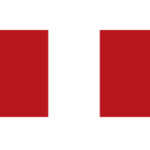

In Peru’s vibrant tourism scene, where cultural and natural wealth attracts visitors from all over the world, the hotel industry plays a crucial role. However, behind the warmth and hospitality it offers its guests, there is a vital but often underestimated aspect: compliance, understood as the culture of integrity that must govern organizations.
Compliance in the tourism sector is not only a matter of following rules and regulations imposed by the authorities, but, as we said, it is part of an organizational culture that allows building and maintaining customer trust, safeguarding the reputation of companies and, ultimately, foster an environment of fair and sustainable competition.
One of the main challenges facing the Peruvian hotel industry in terms of compliance is the need to quickly adapt to a constantly changing regulatory environment. From tax regulations to health and safety requirements, tourism-related businesses must be aware of a wide range of regulations to operate effectively and ethically.
One of these challenges is presented in its consideration as a subject obliged to have a money laundering and terrorist financing prevention system (splaft), a system that is supervised by the Financial Intelligence Unit (UIF) [ 1] .
To face this scenario, transparency and integrity are essential. Robust compliance programs must be established that address areas such as the prevention of corruption, money laundering and respect for labor rights. Additionally, ongoing staff training is essential to ensure that all employees understand and comply with established policies and procedures.
Importantly, regulatory compliance goes beyond simply following the laws. It is about promoting an organizational culture rooted in ethical principles and solid values. This involves promoting corporate responsibility and commitment to environmental and social sustainability. Companies that take a comprehensive approach to compliance not only minimize the risk of legal sanctions, but also create a competitive differentiator that resonates with increasingly aware consumers.
However, implementing and maintaining a strong compliance program is no easy task. It requires investment of time, resources and, most importantly, genuine commitment from senior management. It is essential that industry leaders recognize the strategic importance of compliance and integrate it into corporate decision making.
Additionally, given the impact of technology on the hospitality industry, companies must be attentive to the cybersecurity and data protection implications. The collection and storage of personal guest information carries great responsibility, and it is crucial that appropriate measures are implemented to protect data privacy and security.
In view of the importance of compliance in the Peruvian tourism industry, it is essential that business leaders understand its strategic value and the need to implement it in their organizations. Only through active commitment to ethical principles and legal standards will tourism companies be able to strengthen their reputation, earn the trust of their clients and remain competitive in an increasingly demanding market.
Therefore, we invite all managers in the hospitality sector to seriously consider implementing compliance in their companies as a long-term investment in the integrity and sustainability of their businesses. Adopting a culture of ethical compliance will benefit not only the company’s internal relations but also its corporate image, contributing to strengthening the growth of the tourism sector in Peru.
[1] Institution dependent on the Super Intendency of Banking and Insurance (SBS).
For more information contact:
Mario Pinatte | CPB Partner | mpinatte@cpb-abogados.com.pe





